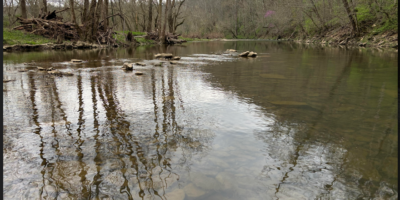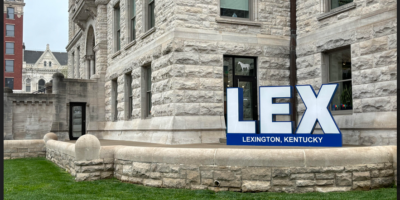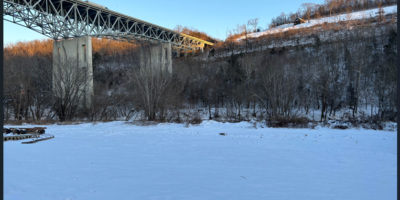People’s histories the focus of 2010 SNOC series
By Danny Mayer
The Slightly North of Center Community Talks (SNOC) will begin their third sun-season run at Al’s Bar with four talks held on concurrent Thursdays in May and June. The free talks are open to the public and traditionally focus on topics that might be of interest to residents living in the immediate North Limestone vicinity. In remembrance of historian, rabble-rouser and consummate educator Howard Zinn, this year’s speakers will focus on telling People’s Histories of Kentucky.
Though the titles and main proprietor (me) are nearly identical, the Slightly North of Center speaker series pre-dates this paper by a full year. I teach an 8-week first-year writing class at Bluegrass Community and Technical College during the summer term. The more laid back summer format allows me to move my students—and their writing—away from the classroom, off of the campus and into communities whose voices are not well represented. It is an effort on my part to impress upon my students how the writing skills they learn in “class” can be used to engage in community conversations.
As an avid patron of Al’s and a recent newcomer to the northside, I have seen up-close the success of free public gatherings there in the form of Eric Sutherland’s Holler Poets series and Kurt Gohde and Kremena Todorova’s Arts in the Community meetings, both of which utilized Al’s Bar for mobilizing communities. The enthusiasm of Holler in particular has reminded me how vital bars and pubs have been, historically, as open gathering spaces for radical cultural and intellectual conversation. The American Revolution, for chrissake, was plotted in bars and pubs.
Drawing from these models, I first organized the Slightly North of Center talks three years ago at Al’s Bar as an open classroom/community endeavor. As I told the first speakers, think of yourself as giving a public lecture to an interested and engaged bar audience–my students will ensure an audience of at least ten people. It seemed like a natural way to have students engage socially and intellectually with a variety of different, non-campus, communities. I hoped that my speakers and the general public might offer my students productive models of intellectual community engagement and caring . Fittingly, Jim Embry was the series’ first speaker, and he spoke of urban gardens and UK’s failed connections to its urban communities.
With a few notable exceptions, public attendance has been sparse in previous years, so my students have often come away thinking that nobody cares about the issues discussed there. Truthfully, it might be more apt to think of think of SNOC as the empty Holler, though hopefully that’s not the case this year. I’ve chalked the prior attendance up to poor promotion on my part (fliers, emails, word of mouth), so my owning a newspaper should help things a bit on that end, but there’s also this: though the topics all represent important concerns germane to many northside neighbors, they are not necessarily “feel good” stories that attract the sort of audience that, for good or ill, we have at NoC.
Last year’s SNOC series, for example, focused on the prison industrial complex. Talks focused on Ana Romero’s suicide in jail while awaiting deportation, on Kentucky drug and (anti-felon) voting laws, and on the uprooting of urban prison populations into prisons set in poor rural Appalachian communities. As one Herald Leader journalist noted to me in an email declining to drop on by to hear any of the four talks, prisons just weren’t his thing. (Lucky for me, my students—a majority of whom either spent time in jail or had family members who did—were a more interested audience.)
This year’s speakers will be telling stories in the tradition of “histories from below,” or what Howard Zinn calls “people’s histories.” In the first talk in the series, UK geographer Rich Schein will look at the northside’s development as a racialized landscape using maps, neighborhood racial covenants, and understandings of urban slave labor. His story of northside “renewal” promises to be different than more triumphal boosterish accounts. Subsequent talks will focus on northside neighborhood resident histories, gay bars in Lexington, and coal resistance in the Appalachian mountains. Though the topics are diverse, they are each connected through a commitment to telling their story through the lens of people who pushed back against the accepted norms of the day to make their own worlds liveable.
My students and I hope to see you there.
The Slightly North of Center Community Talks are held on consecutive Thursdays at Al’s Bar from 6:30-7:30 PM. All talks are free and open to the public. Drop on by for dinner and some intellectually engagement.
Slightly North of Center
Looks at People’s Histories
May 20: Rich Schein on Lexington’s racial geographies
May 27: TBA
June 3: Kremena Todorova, Kurt Gohde and Jenna Jive on Queer Lexington
June 10: Martin Mudd on Coal Resistance from UMWA and AGSLP to KFTC and Mountain Justice
Location: Al’s Bar
Talks begin at 6:30 and end at 7:30. Free and open to public.




Leave a Reply